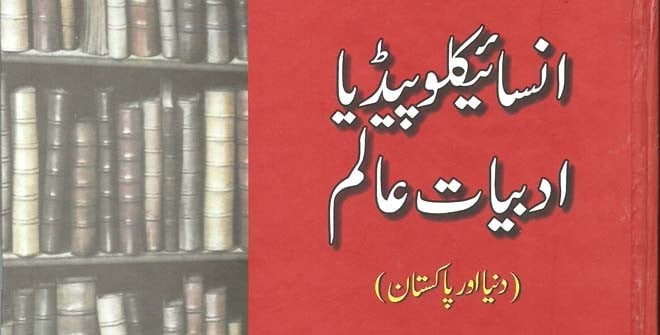

Pakistan abounds in literary forums, boards, academies, foundations and organisations: The National Language Authority, National Book Foundation, Urdu Science Board, Iqbal Academy, Majlis-e-Taraqqi-e-Adab, Islamic Cultural Organization, and Academy of Letters, to name a few. All these bodies are run by public money and right from a peon to the director general, regiments of employees are paid salaries and other benefits from the treasury. But why are so many organisations required to serve the cause of Urdu, and how the aims and objectives of all these outfits differ from one another, has been a well-guarded secret.
Take the Academy of Letters for example, which was established in July, 1976. Dr Ishtiaq Hussain Qureshi became its first President. After that, the organisation was headed by stalwarts of literature like Dr Shafique-ur-Rahman, Ahmad Faraz, Ghulam Rabbani Agro, and Iftikhar Arif, but today the Academy is not a patch of what it used to look like.
One only needs to look at the website to gauge the downward slide. The Academy has also released a directory of Pakistani writers on its website, in which a famous Pakistani novelist is named as Mohsan Hameed (sic). You can guess who they are referring to, but you get further confused when you look at his year of birth, which according to the directory, is 2007. By this measure our good old Mohsin Hamid is only six years of age, and his name should be published in the Guinness book.
The website has a full page ad of its latest publication: Encyclopedia of World Literature. After browsing through the website one tends to not take the publication seriously. That is why I casually thumbed through it, hoping to find some ridiculous errors to laugh at…but, the more I read the more I realised that it was a serious work.
Compiling an encyclopedia is a gigantic task and one can’t even think of doing it single-handedly; but then, Yasir Jawad is no ordinary man: he has translated, compiled and edited several books on subjects ranging from space science to cultural imperialism.
He seemed to have three distinct models in mind while designing this volume:
(a) The Oxford Encyclopedia of British Literature, edited by D.S. Kastan, which provides comprehensive coverage of literature from the Abbey Theatre to Israel Zangwill, covering the entire history of literature in the United Kingdom and the Republic of Ireland in the major literary languages (Anglo-Saxon, English, Welsh, Scots, Irish, and Latin). It includes substantial accounts of individual authors (e.g. Spenser, Pope, Austen) and detailed histories of particular themes, movements, genres, and institutions.
(b) Merriam-Webster’s Encyclopedia of Literature which is a comprehensive, up-to-date overview of the authors, works, genres, and terms of world literature. It combines the best features of a dictionary with those of an encyclopedia. It contains entries for authors, works, literary landmarks, literary and critical terms, mythological and folkloric figures, fictional characters, literary movements and prizes, and other miscellaneous matters
(c) The Russian Literary Encyclopedia. This 12-volume work was painstakingly compiled in the former USSR from 1929 to 1939. In addition to Russian authors, it describes in detail various literary schools, trends, directions, and literary concepts.
Yasir Jawad has divided his voluminous work into two parts: the first part is devoted to world literature, in which English, French, German, Spanish, Russian and other major languages are covered. Short profiles of all major poets, fiction writers and critics are a distinct feature of this work. In addition, various literary movements, literary traditions, different genres, and important mythological characters are also discussed.
The second part is reserved for Pakistani authors. Urdu has obviously the lion’s share, but Punjabi, Sindhi, Pashto, Balochi and Brahvi are also not neglected. A small minority of Pakistani writers, which is usually ignored in such surveys, has been given proper space, and you can find information on Kamila Shamsi, Nadeem Aslam and Mohammed Hanif in this encyclopedia.
Yasir Jawad’s prose is simple and plain, but a radical deviation from the traditional Urdu narrative is his disregard for honorific pronouns. As we all know, when honorifics are attached to an Urdu noun or pronoun, the following verb matches the plural case. Yasir thinks it’s merely a formality and should be dispensed with.
There is a detailed 72-page alphabetical index, with cross references, which makes it easier for students and researchers to find any name or literary term. At the very end of the book, a list of literary awards and their winners is given year wise, from 1997 onwards. The price is a bit on the higher side for individuals, but libraries and institutions can certainly afford it.